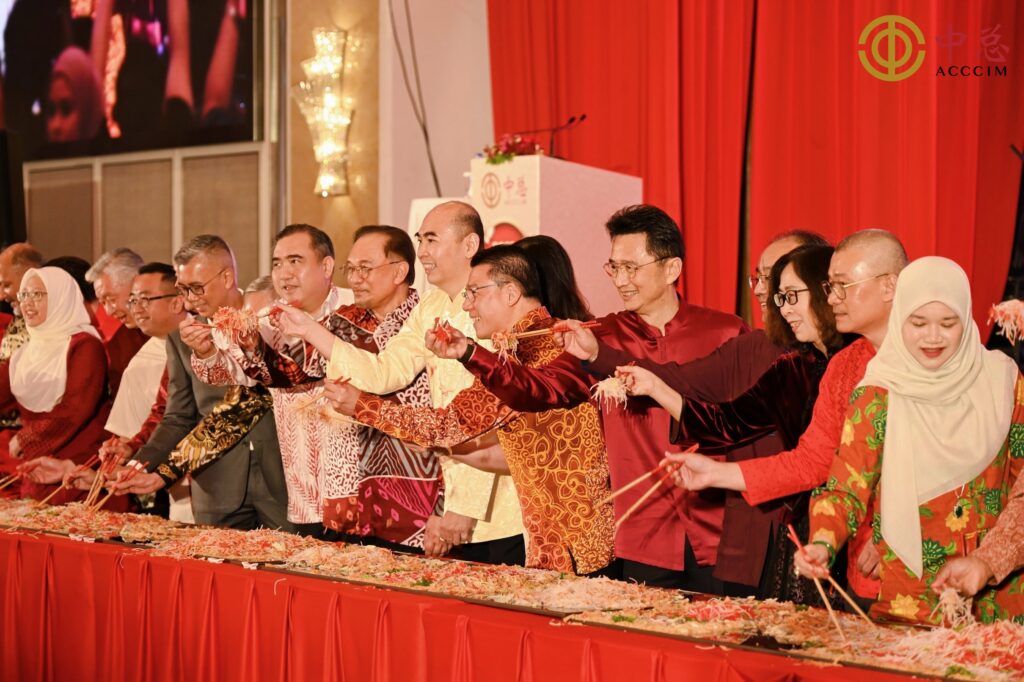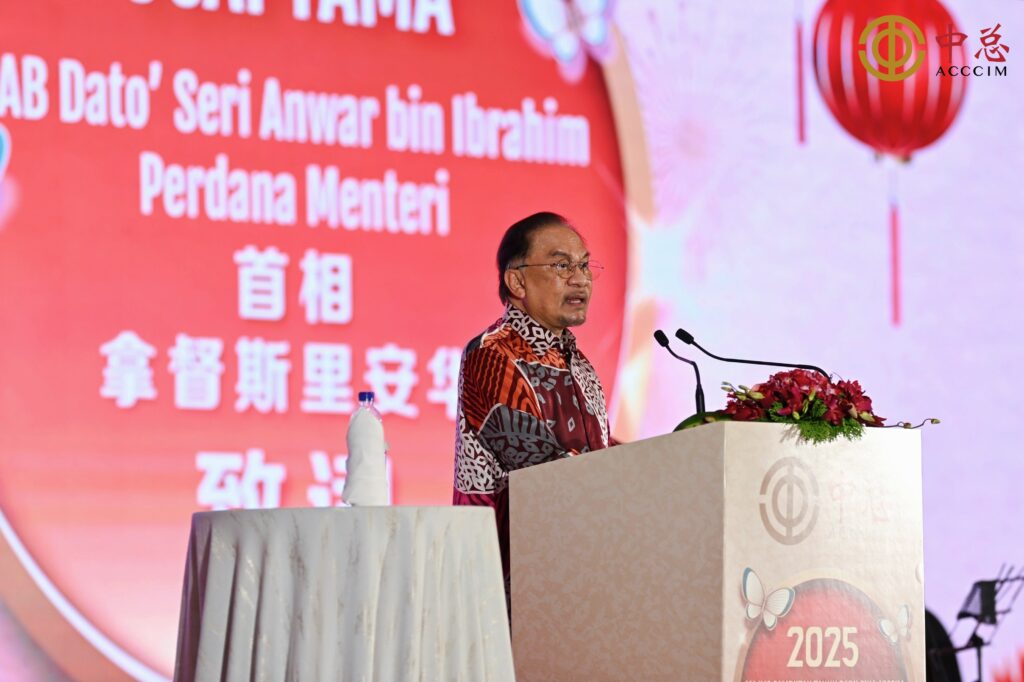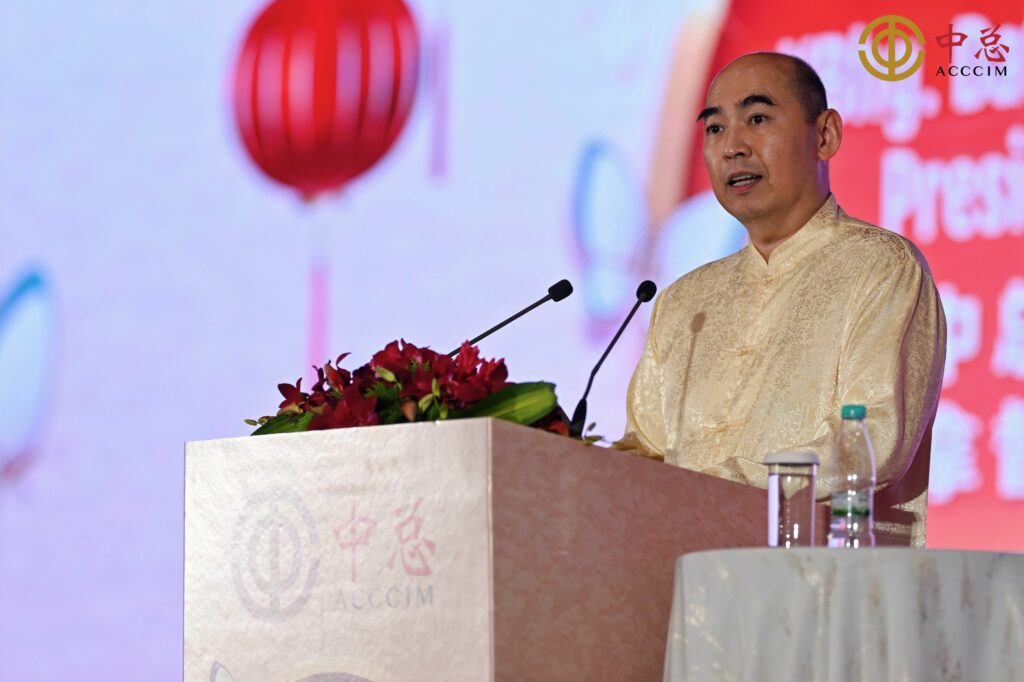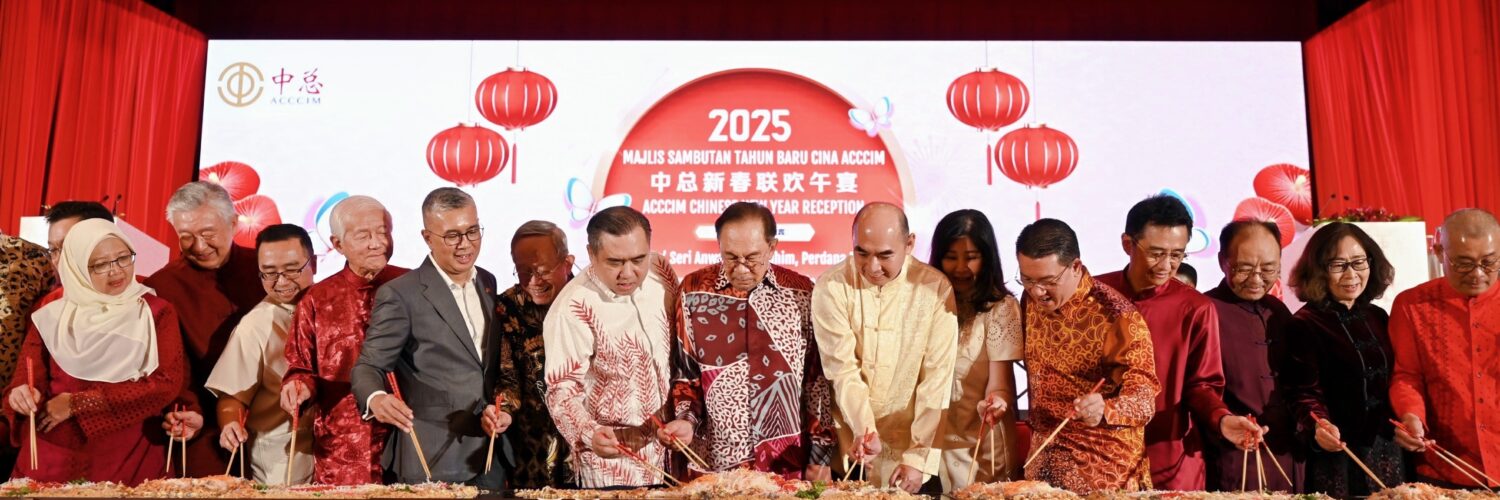Kuala Lumpur, 3 February 2025—In a unified call to action, Prime Minister Dato’ Seri Anwar Ibrahim and the Associated Chinese Chambers of Commerce and Industry of Malaysia (ACCCIM) President Datuk Ng Yih Pyng underscored the urgency of collaboration between government, businesses, academia, and citizens to propel Malaysia’s economy forward amid global uncertainties.
Their speeches at the ACCCIM Chinese New Year Reception in Shangri-La Kuala Lumpur addressed a hall filled with business leaders, diplomats, and luminaries focussed on pragmatic reforms, digital transformation, and strategic global partnerships.

Success Hinges on Collective Effort
The Prime Minister set the tone by urging Malaysians to embrace systemic reforms as a national imperative.

“This is not the time for complacency. Our rapidly evolving world demands urgency—accelerating digital transformation, eradicating corruption, and streamlining governance are non-negotiable,” he said. Highlighting the need for inward focus, he stressed actionable steps like fast-tracking approvals and ensuring policy clarity to realise Malaysia’s potential as a dynamic, forward-looking nation.
He linked domestic reforms to global ambitions, noting Malaysia’s engagements with the EU, China, and ASEAN. “The resumption of negotiations for the Malaysia-European Union Free Trade Agreement (MEUFTA) free trade talks and partnerships like the Comprehensive Economic Partnership Agreement (CEPA) with the United Arab Emirates (UAE) are gateways to new opportunities,” he said while cautioning that geopolitical shifts require agility.
Balancing Reforms and Cost Pressures

Echoing the PM’s urgency, ACCCIM President Datuk Ng Yih Pyng pledged the business community’s support but highlighted pressing challenges. Citing an ACCCIM survey, he revealed cautious optimism that over 30% of businesses foresee better prospects in 2025, whilst high operating costs, supply chain disruptions, and inflationary risks from policy reforms like electricity tariff hikes and EPF contributions for non-PR foreign workers, remain a concern.
“Businesses need consistency and pragmatism,” Ng asserted, urging targeted measures such as extending export credit scheme to domestic SMEs, reducing import duties on raw materials, assisting in exploring new export markets, and diversifying supply chains. He added, “The process of economic and subsidy reforms must be gradual to avoid disruption to market and businesses.”
He welcomed Malaysia’s trade agreements as “critical conduits to stabilise external trade” and highlighted the ACCCIM, Singapore Chinese Chamber of Commerce and Industry (SCCCI), and UOB Memorandum of Understanding (MOU) signed on 16 January aimed at bolstering cross-border business collaboration and investment opportunities in the Johor-Singapore Special Economic Zone (JS- SEZ) and Southeast Asia.
Synergy in Vision
Both leaders aligned on prioritising digital transformation and governance efficiency. The Prime Minister called AI adoption a “revolution requiring immediate education and policy shifts,” while Ng emphasised preparing SMEs to compete globally. The Prime Minister closed with a nod to ACCCIM’s role, citing “human connections” as a key to turning challenges into breakthroughs and achieving progress as a united front.








